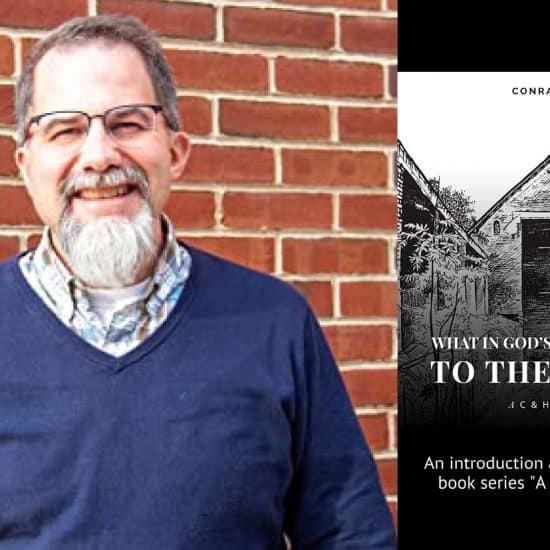WAKE FOREST, N.C. (ABP) — The lead author of a “Great Commission Resurgence” document circulating among Southern Baptist Convention leaders says a major overhaul of denominational structures must occur if the convention is going to engage younger pastors.
Danny Akin, president of Southeastern Baptist Theological Seminary in Wake Forest, N.C., said the most important article in the document he co-authored with SBC President Johnny Hunt is the first, which calls Southern Baptists to first and foremost commit to the Lordship of Christ.
"If we get that one right, everything else will fall into place," Akin said in an interview with the Biblical Recorder newspaper.
While the declaration, which began as a sermon by Akin with the same title, contains 10 articles, the one gaining most attention leading up to the upcoming SBC annual meeting in Louisville, Ky., is a call for developing "a more effective convention structure."
An early version of that article described "a bloated bureaucracy" in the current system with duplicated staff positions at local, state and national levels. Akin said state convention executive directors who were offended by the characterization “didn't understand” the comment, which was toned down in subsequent revisions.
“I'm their friend, not their enemy,” he said. “I don't want to hurt them.”
Akin said denominational executives at all levels need to understand that the “under-40” wave of church leadership has no “blind loyalty” to existing structures and will fund “only what they believe in.”
“They don't believe in the bureaucracies of the SBC,” Akin said. “They're walking and now beginning to run away from the SBC.”
Akin said when churches run into bureaucratic roadblocks that hinder them from funding missions in creative or unique ways, they simply go around them. He said younger ministers no longer care if their mission gifts are counted as part of the Cooperative Program, a unified funding mechanism by which churches simultaneously fund state and national Baptist organizations.
Akin said state convention executives are going to have to make a “persuasive argument” to younger pastors as to why they should “buy into” the state convention. “If you make that argument, they're going to give,” he said. “If you don't, they're going to bypass you.”
Akin said Baptists must have confidence their mission gifts are doing more than just feeding a bureaucracy.
The Great Commission Resurgence document, posted online, has garnered over 3,000 signatures. Akin said he would have been happy with 500.
Hunt, pastor of First Baptist Church in Woodstock, Ga., has announced he will recommend appointment of a study committee at the June 23-24 annual meeting to flesh out the document and make recommendations.
Akin said he and Hunt have no agenda other than putting forth a declaration seeking agreement from others. Some have asked Akin if he wants to abolish the Ethics & Religious Liberty Commission. “Not at all,” he said. Others have speculated about merger of the International and North American mission boards. “I have no opinion on that,” he said.
Akin said there is one thing he does know. “Business as usual in terms of North American church planting and evangelism cannot continue as it is being addressed at the associational, state and national levels,” he said.
Akin said redundancies at structural levels hinder effective use of funds. For instance, many associations, all state conventions and the national convention have systems to find, assess and train church planters.
One ill effect of this redundancy, Akin would say, is that it reduces the amount of money actually available to fund church planters on the field.
Akin referred to Hunt's church, which funded a church plant in Las Vegas with a half million dollars. That church now runs 1,500, but those dollars are not counted as Cooperative Program gifts because they bypassed the system.
Akin also described a recent Southeastern graduate who is planting a church in Washington, D.C. He had to "jump through the hoops" of all three levels of convention structure and finally put together a package of support that totals $36,000 the first year and drops by $12,000 each year. Because the North American Mission Board provides some of those funds, the hours he can work in a non-ministry job to supplement his income are limited.
This in a city where his apartment rent will be $30,000.
“Who should really be in the business of planting churches?” Akin asked. “Other churches. Various Baptist agencies should be helping in that. They shouldn't really be driving it.”
Akin and Hunt will meet June 8 with state convention executives to try to assure them their only agenda is finding a way to relieve “stagnation” they feel in the convention.
This year's convention marks the 30th anniversary of the “conservative resurgence,” a theological/political movement aimed at positioning the nation's largest Protestant denomination to ascribe to biblical inerrancy. Leaders of the movement anticipated a “move to pursue the Great Commission at home and abroad” and a “great revival in expository preaching across the convention,” Akin said. “We haven't seen that either.”
“The promise of the Conservative Resurgence was that eventually we would find enough common biblical and theological ground that we could focus on the Great Commission,” the declaration states in Article 5.
The same article urges an “attempt to discern the difference between primary, secondary and tertiary issues” which lie “at the heart of many of our present tensions.”
Akin said differentiating first-tier issues — those that define what it means to be a Christian — from others will lower tensions and increase cooperation.
“We're simply recognizing your right to believe what you want to believe, but it does affect our ability to cooperate,” Akin said. He used as example that anyone can believe women have the right to be pastors, but “it will be problematic” for churches that do not believe the same way to work together.
Because there is some reference in the document to the Baptist Faith and Message as a “sound confession for building theological consensus for Great Commission cooperation,” Akin was asked about the International Mission Board's adoption of two policies — on baptism and private prayer language — that go beyond the BFM to restrict eligibility of certain missionary candidates.
“I think the IMB policy on private prayer languages is wrong,” Akin said. “I'm with Jerry Rankin on that.” Rankin is president of the IMB.
At the same time, Akin said he supports the clear IMB policy to recall any missionary who promotes charismatic practices on the field.
Norman Jameson is editor of the North Carolina Biblical Recorder.






